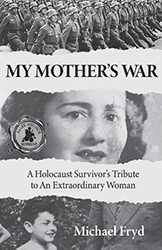Zygmunt Bauman, who died in 2017 at the age of ninety-one, was a prolific and influential Polish Jewish sociologist whose ways of seeing and feeling the world were shaped by the political upheavals of the twentieth century. As Bauman recounts in My Life in Fragments—a richly textured series of essays that’ve been gathered together for the first time — he grew up in a small town in Poland in the 1920s and 1930s, a period marked by exile and displacement. In this respect, Bauman’s life tracks with the history of Eastern European Jewish upheaval and destruction before and after World War II.
Bauman was born into an impoverished Jewish family in the small city of Poznań. “Our life,” he reflects, “was a continuous struggle for survival.” A keen observer of his Polish Jewish neighbors, Bauman looks back with a measure of scorn on those Jews in his community who sought to appear “avidly Polish.” He describes them as “Jews who wished to be Poles … who arrogantly behaved as if they were Poles.”
Crucially, and by contrast, the young Bauman eventually discovered an alternate mode of Jewish identity to counter the bad faith of the would-be Polish Jewish assimilationists. He found it in a local branch of the Hashomer Hatzair (in Hebrew, “The Young Guard”), a collectivist, visionary Zionist youth group. “I ate the forbidden fruit of the tree of freedom,” Bauman recalls, “and it dawned upon me that life could be different from how it was … From my brief, barely half-a-year long Hashomir Hatzair experience, I emerged determined to change the world.” But “soon after,” Bauman movingly reports at the end of this chapter, “I lost my home — forever. And my homeland — for the first time.”
Bauman’s subsequent emergence as one of the most influential sociologists of modernity has become a fascinating subject in its own right. A chapter titled “Maturation” offers a distilled account of Bauman’s personal and intellectual journey after the war, when he returned to Poland to study sociology and began to establish himself as a scholar. But by 1968, he found himself exiled from his Polish homeland once again, branded by the state as a subversive “zionist” (by then Bauman’s father had settled in Israel to join his daughter, Bauman’s sister, who’d immigrated to Palestine years before). In 1971, Bauman arrived in England after a brief teaching stint in Israel, eventually becoming an internationally renowned sociologist based at the University of Leeds, where he remained for the rest of his career.
For those who have admired Bauman as an important figure in the cultural history of postwar European Jewish intellectuals, My Life in Fragments offers rich information that deepens our sense of the biographical context of Bauman’s core ideas. What comes across in these entries above all is how profoundly modern literature and popular culture shaped him. He writes of his encounters with Franz Kafka, Milan Kundera, Albert Camus, Primo Levi, and, more recently, the 2006 film The Lives of Others, which explores the psychological effects of Communist surveillance in Stasi-run East Germany. As someone who was all too familiar with displacement and exile, Bauman was drawn to heroic figures in literature who embody resistance and seek to ease the pain of others.
Bauman’s significance in the fields of sociology and modern Jewish intellectual history will no doubt continue to absorb scholars. Readers who wish to study Bauman’s large corpus of academic writing beyond My Life in Fragments should seek out Bauman’s challenging, earlier writings about modernity and the Holocaust. Toward the end of his career, Bauman also published a series of monographs exploring what he called the “liquid” dimensions of contemporary life — “the continuous and irreparable fluidity of things.” In My Life in Fragments, Bauman returns one last time to his own fluid, ever-shifting experience in modernity, a period full of enormously complex subjects that he sought to demystify in his work. “I am doomed,” he confessed in 2014, three years before his death, “to remain an outsider to the end.”
Donald Weber writes about Jewish American literature and popular culture. He divides his time between Brooklyn and Mohegan Lake, NY.





